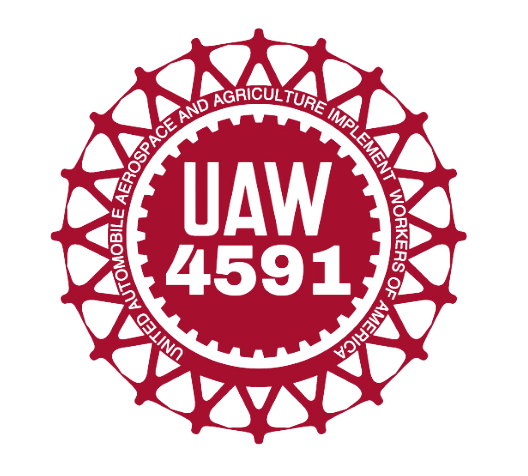Before Unionization vs. After First Contract
Starting February 1st, 2024, as our first Collective Bargaining Agreement came into effect, ASEs of our local union benefit from many improvments to working conditions and enjoy newly bargain rights.
Click through tabs to find out about how our rights and benefits changed with unionization and collective power!
- Wages
- Fees and Tuition Waivers
- Sick Leaves
- Family/Parental Leave
- Vacation
- Health and Safety
- Workload Protection
- Dispute Resolution
- Harassment, Discrimination & Abusive Conduct
Wage increases were determined unilaterally by WSU Admin, not guaranteed.
Minimum salary for 50% FTE ASE was $1,670.00. Assistantship wages had increased by only 6.9% between 2018 and 2023.
Minimum hourly wage was the legal minimum wage.
Minimum salary for 50% FTE ASE in Pullman is $2,318.50 (39% increase), with cost-of-living adjustments for other campuses/RECs.
Effective May 1, 2024, ASEs will receive the new minimum or 5% increase, whichever is greater.
Effective August 16, 2024, minimum wages for ASEs admitted to doctoral programs and those who attained doctoral candidacy will be $2,437 and $2,561, respectively.
Minimum wage for hourly ASEs increased to $17.09 in Pullman, adjusted higher based on location.
Effective October 1, 2025, both salaried and hourly ASEs receive a 3% increase.
Tuition waiver typically offered for 50% FTE assistantships, not guaranteed.
ASEs made to pay these student fees the academic year 2023-2024:
- Pullman and RECs: $2103.16
- Spokane: $1,160
- Tri-Cities: $1,334
- Vancouver: $999
Tuition waiver contractually guaranteed.
Effective August 16, 2025, ASEs with assistantship of 50% FTE or more receive a building fee waiver–at least $389/year back in ASEs’ pockets.
- ASEs were not entitled to sick leave.
Salaried ASEs with 50% FTE receive 9 days of paid sick leave per year at the beginning of their appointment.
Hourly ASEs get 1 hour of sick leave per 40 hours of time worked.
ASEs are not expected to catch up on work missed during sick leave.
Graduate ASEs were provided up to 4 weeks paid parental leave only after being a full-time student for one academic year. If both parents qualified, only one could take the paid leave.
Additional unpaid leave may be granted beyond 4 weeks but assistantship is not guaranteed.
ASEs on assistantship are eligible for up to 6 weeks of paid parental leave.
ASEs may also use paid sick leave and vacation for the purpose of parental leave.
No guaranteed paid vacation.
Salaried ASEs with 50% FTE assistantship are provided with 12 days of paid vacation over the 9-month appointment period (prorated for other appointment lengths).
ASEs can keep their vacation days across different ASE jobs.
Vacation time can be taken outside of semester breaks with supervisor approval.
ASEs covered by applicable university health and safety policies, with no guaranteed enforcement.
No guaranteed representation at University Safety, Health and Security committees.
ASEs have the right to refuse to work in unsafe conditions.
The University must provide PPE, equipment, tools and materials needed for ASEs to carry out work duties. The University will also provide safety training and notifications of hazards.
ASEs guaranteed seats on University-wide Safety, Health and Security committees.
No protections against overwork or unpaid work.
ASEs cannot be required to work without pay.
ASEs with a 50% FTE appointment cannot be required to work more than an average of 20 hours/week.
All paid time off reduces an ASE’s total required workload–ASEs are not required to “make up work.”
Hourly ASEs may not be required to work more than the hours specified in the appointment letter, nor be assigned more than 40 hours of work per week.
No neutral, fair contractual dispute resolution process. WSU Admin decided disputes.
Right to resolve all workplace disputes through a fair and expedient grievance procedure with recourse to a neutral arbitrator.
Discrimination, harassment, and abusive conduct handled through WSU-controlled process or state and federal agencies:
- No ASE control over process
- No clear timelines
- No peer representation.
Protections against all forms of discrimination, harassment, and bullying.
A grievance process with clear timelines — separate from the CCR process — to resolve abusive or discriminatory conduct and the right to appeal to a neutral arbitrator.
The right to survivor-centered interim measures and remedies after reporting in order to continue working in a safe environment.
